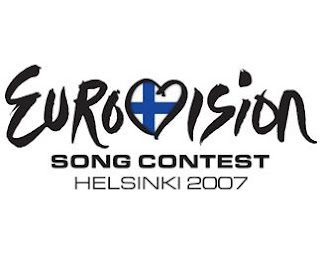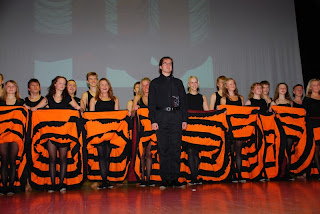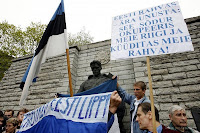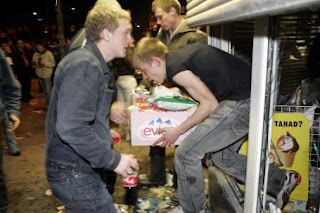
Today were handed out European diaries for the three eleventh form (11c, 11d, 11e).
 The goal of the European diary, is to help the young Europeans to learn their rights and obligations as consumers. More information about the diary can be found here. The teacher Aare Ristikivi cautioned the children not to loose their diaries, because in the next year, they are going to use them for sure.
The goal of the European diary, is to help the young Europeans to learn their rights and obligations as consumers. More information about the diary can be found here. The teacher Aare Ristikivi cautioned the children not to loose their diaries, because in the next year, they are going to use them for sure.We asked from three students, what they think is the goal of the Europe diary.
Ann: To introduse the history of the EU and of course for using.
Lauri ja Karl-Erik: Information about the history of the EU and beautiful pictures. They added that in the diary, there is a huge amount of different information.
When we asked from the students that are they going to use the diaries too, then the answer was unanimous yes.











